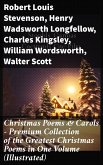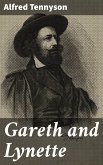In "Maud," Alfred Tennyson explores themes of love, loss, and the psychological turmoil that accompanies personal and societal conflict. This dramatic monologue intricately weaves lyrical and emotive language with vivid imagery, capturing the protagonist's descent into despair following the death of his father and the betrayal by his childhood love. Set against the backdrop of a changing Victorian society, the poem reflects Tennyson's engagement with contemporary issues such as social injustice and mental anguish, employing a rich tapestry of symbolism and rhythm to evoke profound emotional resonance. Alfred Tennyson, the Poet Laureate of Great Britain during much of Queen Victoria's reign, was profoundly affected by personal loss and the tumult of the times. The untimely death of his close friend Arthur Hallam had a lasting impact, fueling Tennyson's exploration of grief and existential anxiety in his work. "Maud" not only embodies his innovative poetic style but also serves as a critique of the societal norms that contributed to his disillusionment, situating the poem within the modern literary canon. This meticulously crafted work invites readers to delve into the complexities of the human psyche and societal decay, making it a compelling read for those interested in Victorian literature. Tennyson's ability to blend personal narrative with broader themes makes "Maud" an essential exploration for anyone seeking to understand the interplay between individual emotion and societal change.
Dieser Download kann aus rechtlichen Gründen nur mit Rechnungsadresse in A, B, BG, CY, CZ, D, DK, EW, E, FIN, F, GR, H, IRL, I, LT, L, LR, M, NL, PL, P, R, S, SLO, SK ausgeliefert werden.









